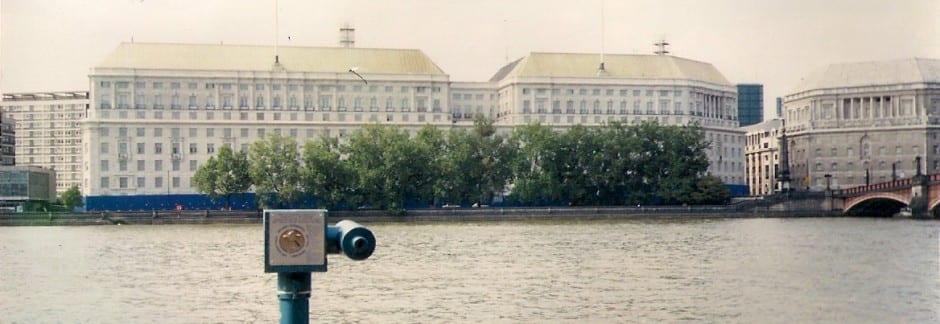The ‘cash for access’ allegations against that the former foreign secretaries, Jack Straw and Sir Malcolm Rifkind, have led to both being suspended from their parliamentary parties. There are clearly wider questions to be answered about the outside interests of parliamentarians and perhaps more pointedly about the external interests of members of the Intelligence and Security Committee (ISC). However, the fallout from this case also serves to reveal important new dynamics in the relationship between Parliament and the Intelligence and Security Committee.
Questions have, understandably, been raised about Sir Malcolm’s future as Chair of the Parliamentary Intelligence and Security Committee. Downing Street, were quick to point out that Sir Malcolm’s position as Chair is a matter for the Committee itself, something which Sir Malcolm has also sought to emphasise in his robust response to the Telegraph allegations. This is the result of recent changes to the status and operation of the ISC introduced as part of the Justice and Security Act 2013. The Justice and Security Act changed the status of the ISC, making it a committee of parliament, and provided it with enhanced powers. The legislation also changed the way in which members of the committee are appointed, and perhaps crucially how they may be removed.
Under previous arrangements which were outlined in the Intelligence Services Act 1994, members of the ISC were appointed by the Prime Minister after consultation with Opposition leaders. The Chair like other members was hand-picked by the Prime Minister. Under the Justice and Security Act these arrangements were changed so that members are now appointed by Parliament from a list of nominations provided by the Prime Minister. The legislation also changed the way in which the Chair is appointed, rather than being in the gift of the Prime Minister, the Chair of the committee is now ‘chosen by its members.’
The status of the current committee is somewhat anomalous. Members of the ISC are appointed after each general election and the current committee, including the Chair, was appointed under the old arrangements, following the 2010 general election. The only exception to this is Fiona Mactaggart who was appointed using the new arrangements following the death of the Labour MP, Paul Goggins, in January 2014. The membership of the ISC was not reconstituted following the passage of the Justice and Security Act, although the current committee is in all other respects operating under the arrangements set out in the 2013 Act and has adopted the mantle of Parliamentary Intelligence and Security Committee.
As a result the Prime Minister and Sir Malcolm, are of course, correct in asserting that it is up to the Committee to decide on who should be its Chair. However, what they did not point out is that the new legislation also introduced a new mechanism for removing members of the Committee. Under the previous arrangements ISC members could be removed, ‘if required to do so by the Prime Minister’. Under the Justice and Security Act the Prime Minister no longer has the power to require a member to leave the ISC, but members may be removed if ‘a resolution for the person’s removal is passed in the House of Parliament by virtue of which the person is a member of the ISC,’ effectively providing Parliament with a vote on whether individual members should be required to leave the ISC.
Given that he has already withdrawn the Whip from Sir Malcolm, the Prime Minister may be somewhat relieved that he is not required to decide on Sir Malcolm’s future as Chair or indeed as a member of the ISC. However, for Sir Malcolm the position is not so secure. While he may be confident of maintaining the support of his colleagues on the ISC, sustaining the support of the House of Commons may be somewhat more difficult. Whether this would ever come to a vote, in this case or any other, seems unlikely. If considerable opposition were to emerge within Parliament it may be that Sir Malcolm would resign rather than face a resolution of the House of Commons on his continued membership of the ISC. Nevertheless, it does serve to illustrate the new power of Parliament in relation to the ISC, which perhaps means that its members must take more care than in the past to retain the confidence of their colleagues in the House and not just those they meet around the committee table.
